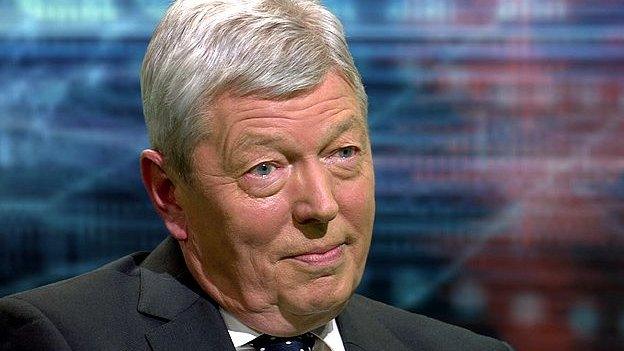Labour split over EU referendum timing
- Published
- comments

'Labour will be supporting a June referendum' - Alan Johnson of 'Labour In for Britain'
A week is a long time in politics. On January 27, First Minister and Welsh Labour leader Carwyn Jones, with other Welsh party leaders, signed a letter, external to the prime minister urging him not to hold the EU referendum in June.
It would, they said, create "the potential for confusion as a diverse range of issues is presented to the electorate" facing assembly elections on May 5.
The letter said: This is not just a matter of respecting the integrity of the Welsh electoral debate, but of affording the EU referendum campaign the respect it deserves."
Fast forward one week and former Home Secretary Alan Johnson, who chairs "Labour In for Britain", announced that the party would support a referendum in June.
He told the BBC: "Labour will be supporting a June referendum firstly because the earlier this referendum takes place, the more this fog of uncertainty can be removed from over our economy. That's good for business, good for our economy.
"It also means we get it out of the way and I think it's more likely to be a yes vote the earlier we have it, quite frankly so we'll be supporting the government if their statutory instrument is as we expect, which is a referendum in June, probably 23."
'One voice'
Back to the first minister, a spokesman for whom said: "We've noted today's comments from Alan Johnson. Our position is clear and hasn't changed. Wales has spoken with one political voice on this issue - we believe that holding a referendum in June is a mistake, and we will continue to argue against a June poll."
If the prime minister gets a deal at the Brussels summit on February 18 and 19, it appears as if that argument will fall on deaf ears at Westminster, as will an SNP motion making a similar point. Plaid Cymru, whose leader also signed the letter, have noticed Labour differences., external
Having dealt with devolved and police and crime commissioner elections on May 5, Welsh voters may then only have seven weeks in which to switch their gaze to the question of Britain's future in Europe.